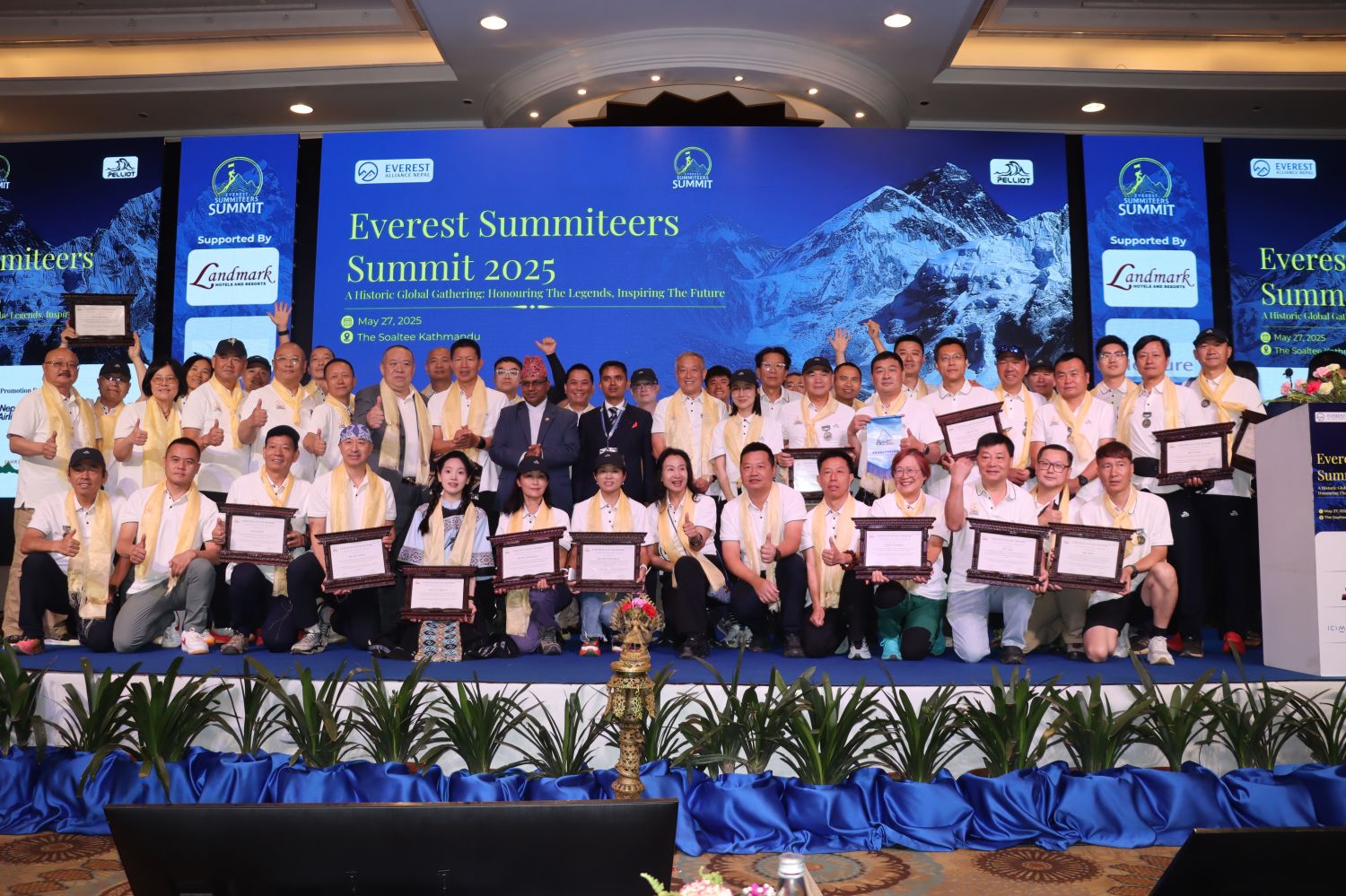
SATV 27 May, Kathmandu: The International Everest Summiteers' Summit 2025 was held today in Nepal's federal capital, Kathmandu, under the auspices of Everest Alliance Nepal. The event marked a significant milestone in the global mountaineering community, bringing together climbers and stakeholders from around the world to celebrate, collaborate, and commit to the sustainable future of the Himalayas.
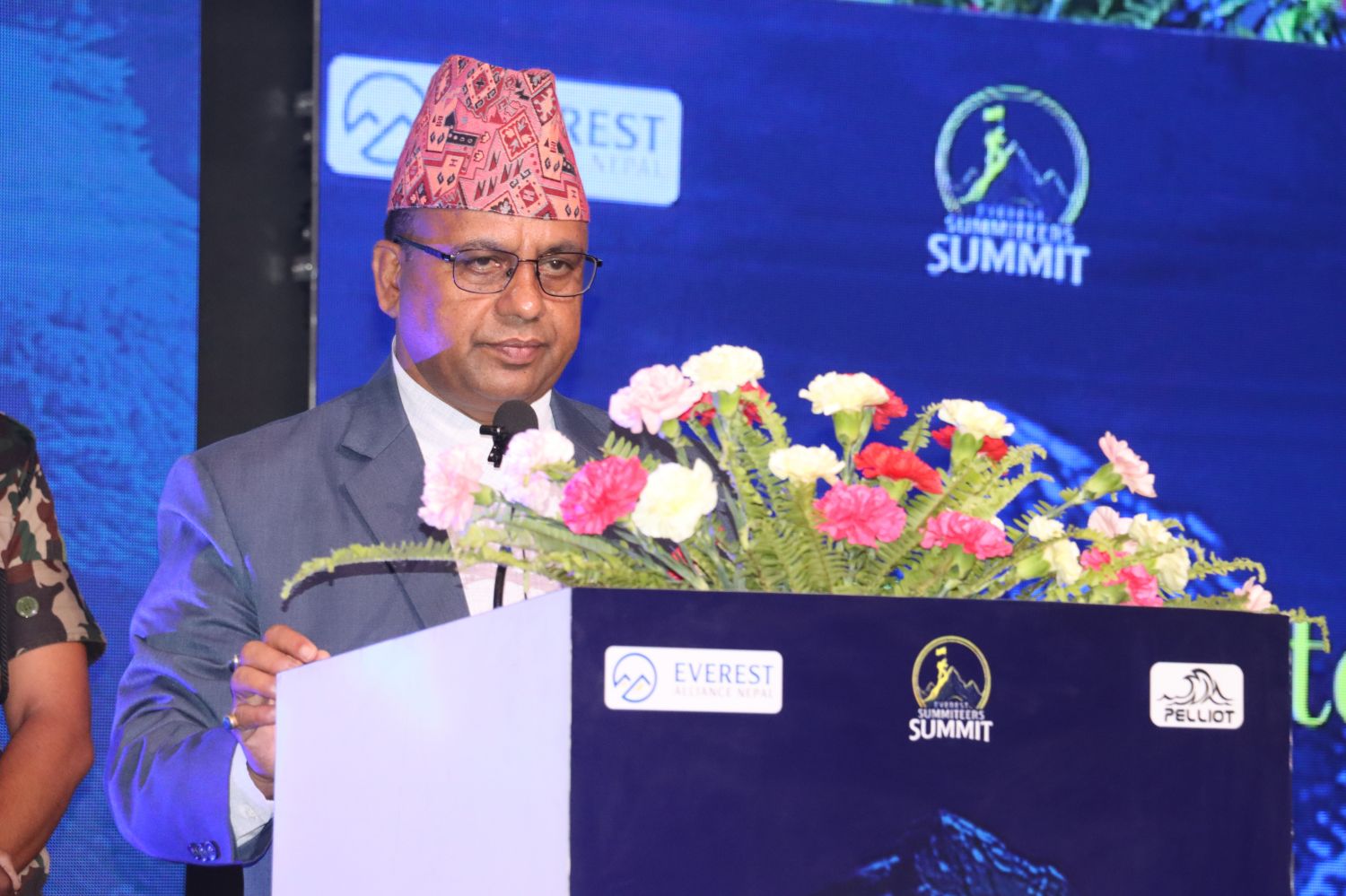
Hon. Minister for Culture, Tourism and Civil Aviation, Badri Prasad Pandey, has lauded the unwavering dedication and significant contributions of Sherpas in the field of mountaineering. Speaking at a special program organized in Kathmandu to honor Everest summiteers, Minister Pandey acknowledged the critical role Sherpas play in ensuring the success and safety of expeditions to the world’s highest peak. During his address, the Minister expressed deep appreciation for the physical and logistical support provided by Sherpa climbers, highlighting their tireless efforts during ascents. He also emphasized the need to strengthen the mountaineering sector by introducing supportive legislation and developing essential infrastructure, considering the extreme challenges climbers face. Minister Pandey reaffirmed the government’s commitment to promoting safe and sustainable mountaineering practices, while ensuring the welfare and recognition of Sherpas and others working in high-altitude tourism.
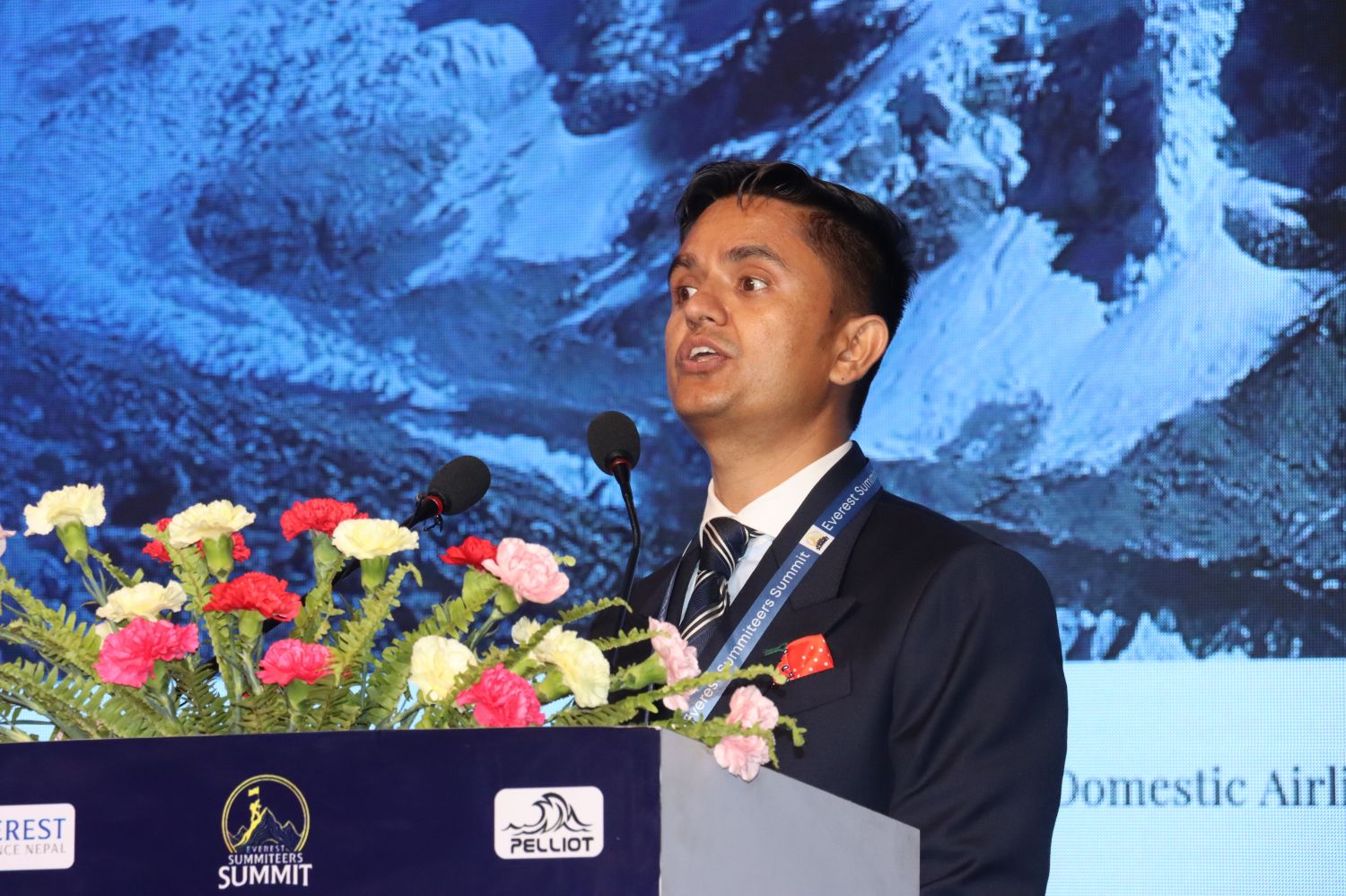
Chair of the organizing committee, Sudarshan Nepal, highlighted the importance of the event in his inaugural address, stating that the summit united a diverse range of participants, including national and international Everest summiteers, mountaineering experts, policymakers, conservationists, tourism entrepreneurs, Sherpa guides, trekkers, and mountain communities. The summit served as a dynamic platform to discuss sustainable tourism, environmental protection, and the empowerment of Himalayan communities.

More than 177 mountaineers from 16 countries, including India, China, the USA, Pakistan, Austria, Britain, Italy, Norway, Iran, Singapore, Australia, Lebanon, Morocco, and the UAE, were in attendance. Throughout the day, summiteers shared their inspiring stories, reflecting on their triumphs, struggles, and the lessons learned from conquering the world’s highest peak. The summiteers were awarded with the token of love for their courage and inspiration to ascend Mt. Everest.
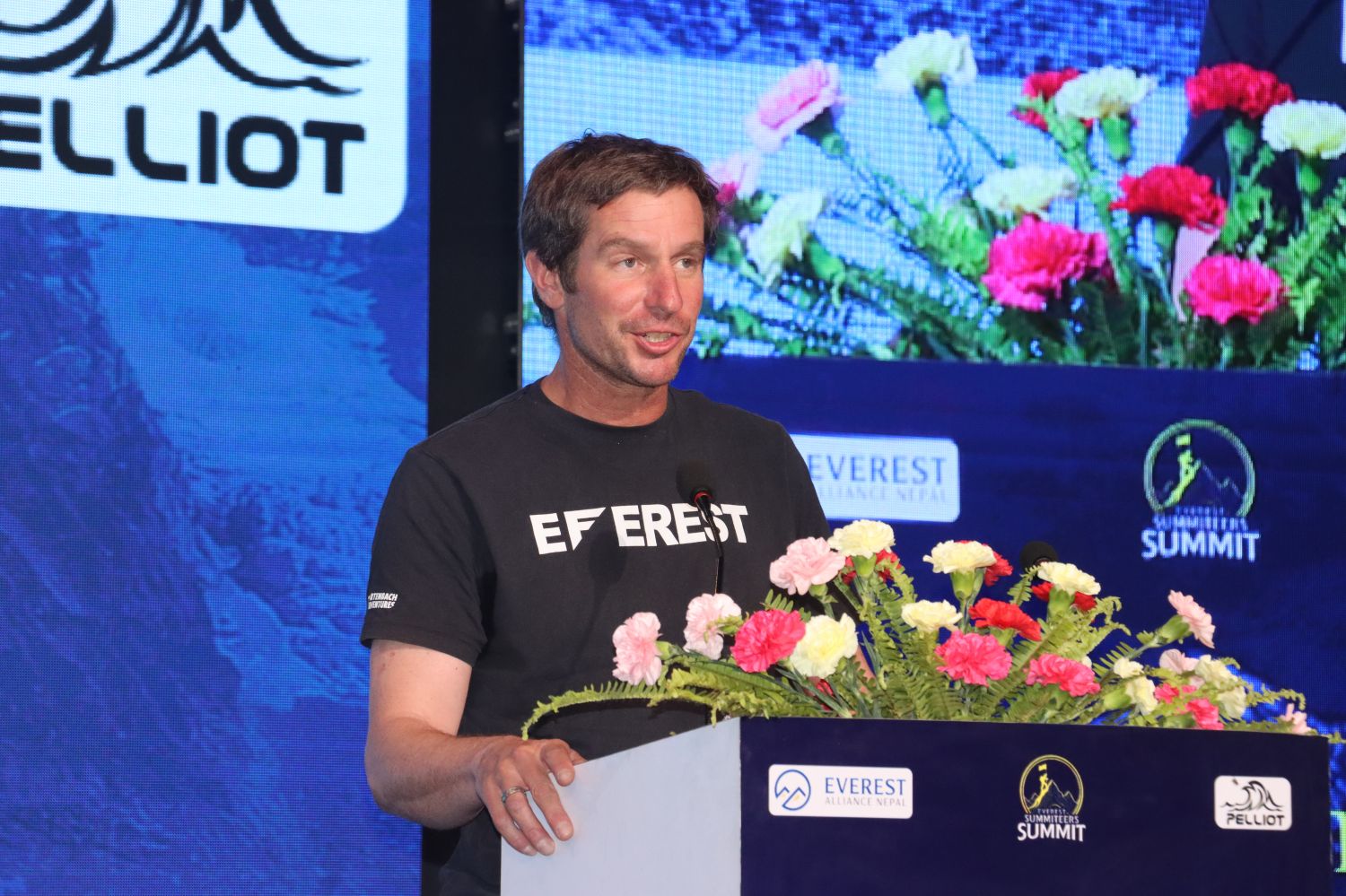
Environmental conservation was a focal point of the summit, with major support from international and national organizations such as ICIMOD, IUCN, WWF, ZSL, and NTNC. Discussions centered around responsible mountaineering, the urgent climate crisis in the Himalayas, and the need for coordinated international efforts to safeguard the region. The dignitaries pointed out the emergency steps are to be taken so that the Mountains would be safely handed to the upcoming generations.
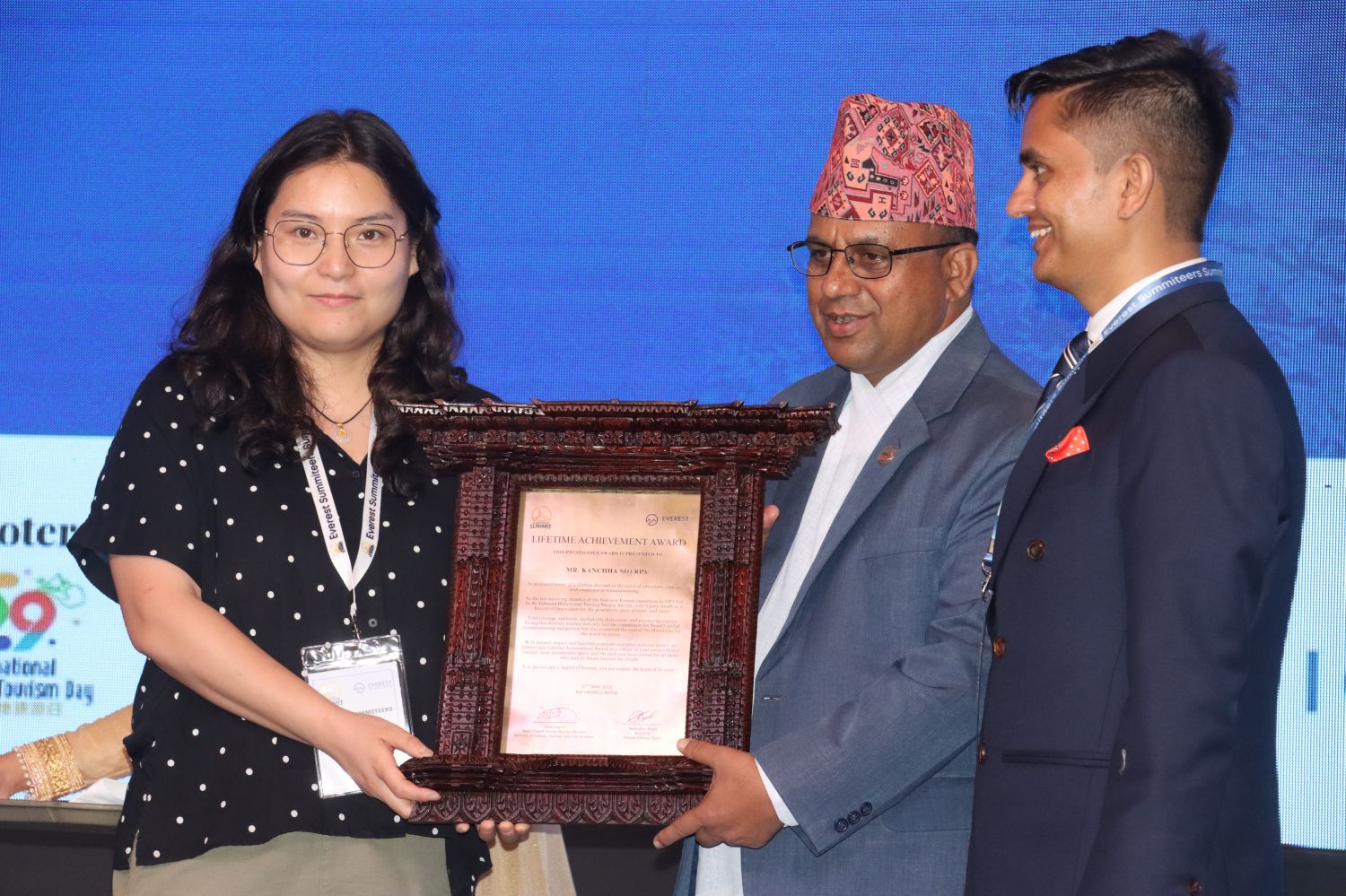
Representative of Kanchha Sherpa receiving award on behalf of Kancha Sherpa
A highlight of the event was the honoring of Kanchha Sherpa, the last surviving member of the 1953 Everest expedition with Sir Edmund Hillary, who received the Lifetime Achievement Award in recognition of his historic contribution to mountaineering.
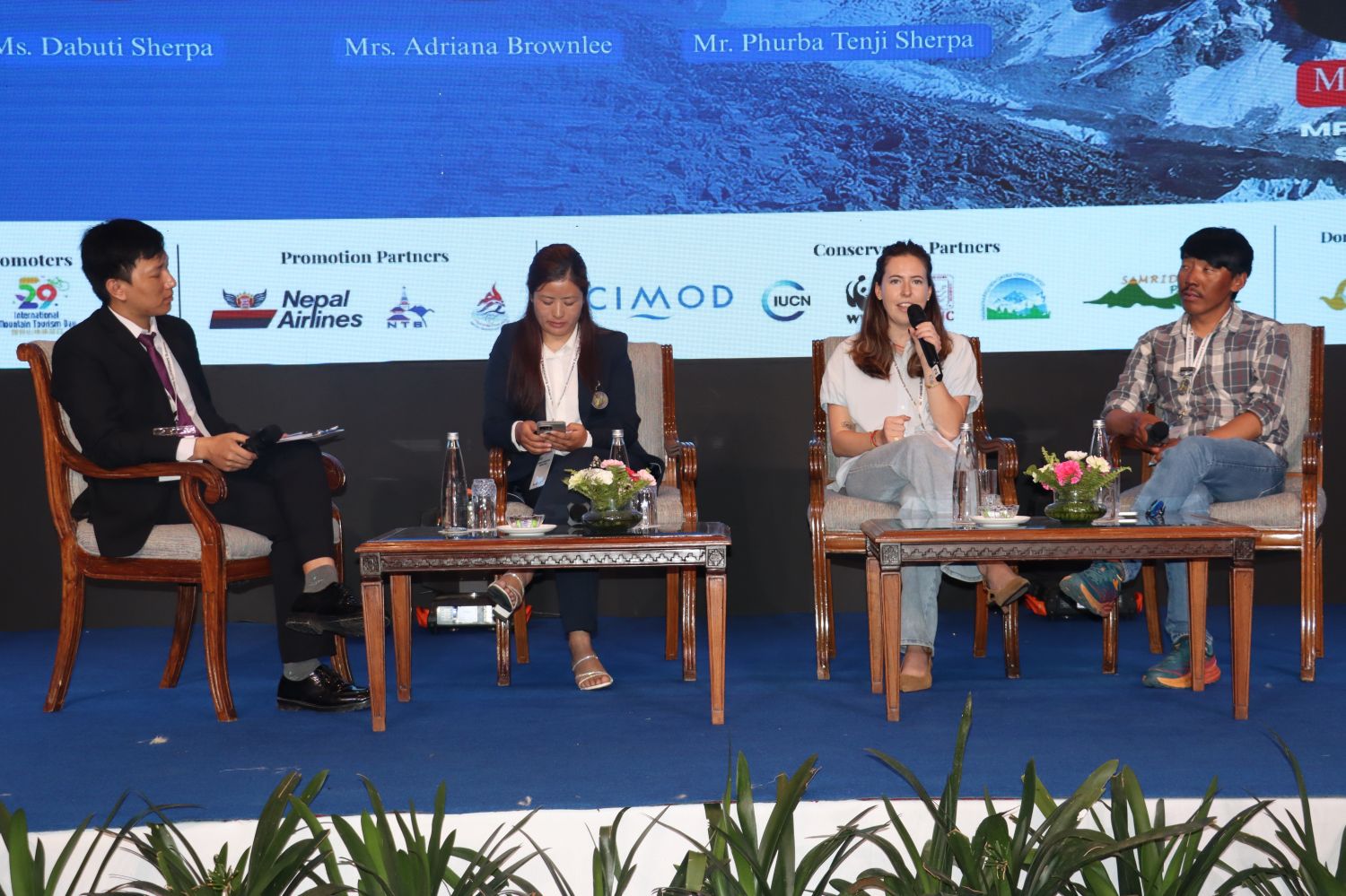
The summit also featured engaging seminars on topics including the challenges of modern climbing, women's participation in mountaineering, advancements in climbing technology, and climate change. Cultural events such as a Himalayan cultural festival, traditional tableau displays, art and photo exhibitions, and showcases of local handicrafts and mountaineering equipment added a vibrant touch to the proceedings.

Held under the theme “Everest is our pride, identity, and now our responsibility,” the summit concluded with a renewed global commitment to preserving the Himalayan environment and fostering sustainable, inclusive mountaineering practices.



















